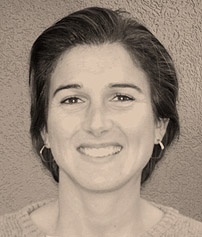|
Palestine,
the olives,
identity and peace
Interview with Daoud Nassar,
Tent of Nations, Bethlehem, Palestine

By
Vicky
Rossi
Comments directly
to vickyrossi555@gmail.com
November 29, 2006
Daoud Nassar is the owner of 100 acres of land nine kilometers
southwest of Bethlehem. This land has been in the Nassar family since
1916 - family members used to the live in caves there - and it has been
cultivated for olives, grapes and wheat. Nevertheless, in 1991 the Israeli
military declared the land to be Israeli state property. The Nassar
family was able to challenge Israel in the courts as fortunately they
were in possession of all the original land ownership papers dating
back to the Ottoman period. In 2001, although the legal case remained
unresolved, the local council of Israeli settlements decided to build
a road on the eastern side of the Nassar land. Then in 2002 the same
council took the decision to build another road on the Nassar property,
this time along the western side. It took all the efforts of the Nassars
in the Israeli courts to stop both road projects; however the land ownership
case is still being contested in the high court, where it has been repeatedly
postponed.
We publish the interview on November
29, the UN International Day of Solidarity with the Palestinian People
There is much more material from Vicky Rossi's fact-finding mission
and interview on her blog
Visions of Peace and Reconciliation.
Excerpts of the interview with Daoud
Nassar
“The olive trees are very important to us because they can live
for many years, even generations. Their roots go deep into the earth.
The olive tree is connected to our struggle for peace, justice and freedom
because we, in the same way as the olive tree, have our roots here. So
the Palestinians have a deep connection both to the land and to the olive
trees.”
“Palestinians are living under Occupation and the Israelis are trying
to confiscate as much land as possible through settlements, by-pass roads
and in recent years the building of the Wall. The Wall is literally cutting
the Palestinians from their fields. Many Palestinians can no longer go
to pick the olives at harvest time because they cannot get freely to their
fields. The Israelis make access for the olive farmers as difficult as
possible by putting up road blocks etc., hoping Palestinians will become
discouraged and abandon the land.”
“The big problem is that there are mostly Israeli products on the
Palestinian market. I can say that this is also the fault of the Palestinians
themselves. Of course the roadblocks are playing a role, but on the other
hand the Palestinians don’t have a strong sense of, “Why not
buy Palestinian products”. A friend of mine was visiting us from
Italy. When he was in Ramallah he wanted to buy some olive oil. As you
know we produce olive oil in this country, but he couldn’t find
any olive oil from Palestine in the shops. Well, he found olive oil from
Greece, from Spain but no Palestinian oil. Just imagine - we are selling
imported products yet our own products have no market. […]
In my opinion in order to break this circle
- to encourage farmers and to help them to stay on their land –
we need to ensure that they have a guaranteed outlet for their harvest.
This means organizing ourselves in such a way that we can say to the farmers,
“OK, how many olives do you have? How much oil do you have? We will
buy it from you, no problem. Just keep going, keep planting trees and
don’t worry about the market. We will take care of the market for
your products.” In many countries there is something like a farmers’
market. Why can’t we develop such a thing here?”
“The idea with the Tent of Nations is to offer this land with its
very simple infrastructure as a place for encounters and meetings. We
want people to come together here to build bridges. That’s the motto
of the project: ‘Tent of Nations -People Building Bridges.’
We don’t want people to build walls. We want to bring people together
on a simple plot of land in nature and to give them the opportunity to
express their frustration in a constructive way.”
Continue
and read the entire interview at "Visions
of Peace and Reconciliation".
That's also where you will find the links to Tent of Nations and other
sources.
In
contrast to many ordinary journalistic accounts, Rossi lets the people
she talks with speak
at length and foruses her interviews not only on the negative facts but
also on the positive opportunities.
Thus, Rossi is exploring the potentials of peace
journalism - perhaps precisely because she is not a
professionally trained journalist but a student researcher of peace and
conflict resolution.
Copyright
© TFF & the author 1997 till today. All rights reserved.
Tell a friend about this TFF
article
Send to:
From:
Message and your name
Get
free TFF articles & updates
|